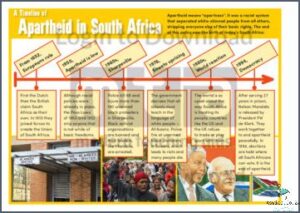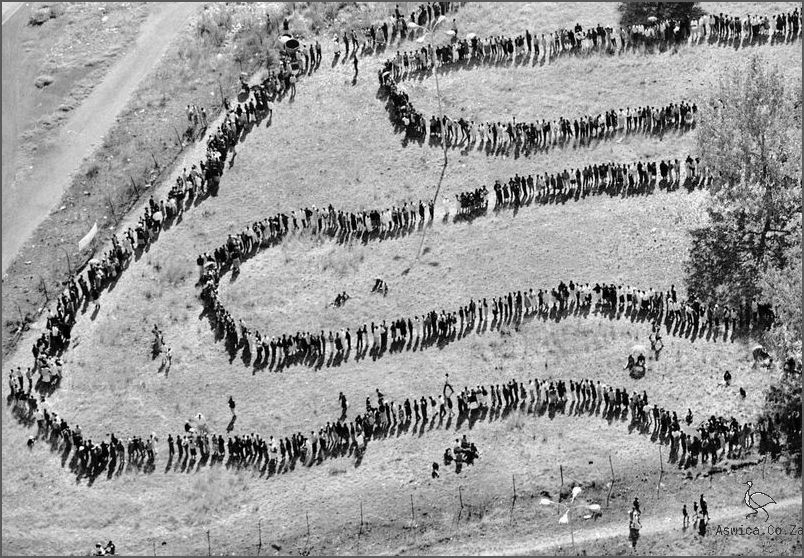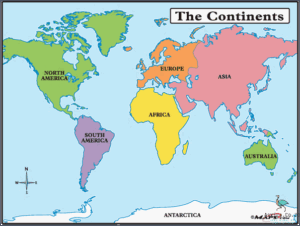
The end of apartheid in South Africa is widely attributed to the leadership of Nelson Mandela and the African National Congress (ANC). The ANC, a political party formed in 1912, was the most active opposition against the oppressive apartheid regime that was put in place by the National Party in 1948. Mandela and the ANC worked tirelessly, often at great personal risk, to end the apartheid system and achieve equal rights for all South Africans. Mandela was arrested in 1962 and spent 27 years in prison before his release in 1990. He then led negotiations between the ANC and the ruling National Party, eventually leading to the first democratic elections in South Africa in 1994. The ANC won the election, and Mandela became South Africa’s first democratically elected president. The new government dismantled the laws and institutions that had enforced apartheid and introduced a new constitution that guaranteed the rights of all South Africans. The end of apartheid in South Africa marked an important milestone in the history of the country and the world, and is a testament to the power of nonviolent protest and civil rights activism.
Contents
Who Ended Apartheid In South Africa
Apartheid was a system of racial segregation in South Africa that began in 1948 and ended in 1994. It was an oppressive system that kept the country divided along racial lines. The African National Congress (ANC) was the main group that fought to end apartheid. Under the leadership of Nelson Mandela, the ANC organized protests, strikes, and other forms of civil disobedience. International pressure, sanctions, and boycotts were also applied to South Africa to help end the apartheid system. Eventually, the South African government and the ANC were able to come to an agreement in the early 1990s, which led to the end of apartheid in South Africa. This agreement was known as the 1993 Interim Constitution, and it provided for equal rights for all South Africans. With the end of apartheid, South Africa began its journey towards democracy and racial equality.
History of Apartheid in South Africa
The history of apartheid in South Africa is marked by a long and dark period of racial segregation and state-sanctioned discrimination against its black population. The term "apartheid" was coined in 1948 to describe the policy of racial segregation and discrimination that was enforced by the South African government. Apartheid was a system of institutionalized racial segregation and discrimination that existed in South Africa from 1948 until the early 1990s.
Under apartheid, the rights, associations, and movements of the majority black population were severely restricted. Blacks were not allowed to vote and were legally segregated from whites in all public spaces. They were denied access to quality education and healthcare, and were subjected to discrimination in the workplace.
The oppressive system of apartheid was widely condemned by the international community, and in 1990, the South African government began to repeal apartheid laws. In 1994, the first democratic elections were held in South Africa, and the African National Congress (ANC) led by Nelson Mandela won a resounding victory. Mandela had spent 27 years in prison as a result of his activism against apartheid.
The election of the ANC signified the end of apartheid, and Mandela and the ANC worked quickly to implement policies that would help to build a more equitable society. They passed laws that aimed to protect the rights of all South Africans, regardless of race or ethnicity. They also implemented policies to promote racial integration and economic growth.

The end of apartheid in South Africa marked a new era of hope and freedom for its citizens. Despite the progress that has been made in the past two decades, South Africa still faces many challenges and inequalities. But the country’s history of apartheid serves as a reminder of the importance of upholding the rights and dignity of all people, regardless of race or ethnicity.
International Pressure to End Apartheid
The international pressure to end apartheid in South Africa was a long and arduous process that took decades of intense advocacy, peaceful protest, and economic sanctions from countries around the world. The end of apartheid was ultimately achieved through a series of negotiations between the National Party of South Africa and the African National Congress, and the dismantling of the government-enforced racial segregation laws that had been in place since 1948.
The international pressure to end apartheid began in the 1950s and ‘60s, with the United Nations taking a stance against the South African government’s policies of racial segregation. The United Nations officially declared apartheid a crime against humanity in 1973, and numerous countries around the world began to impose economic sanctions on South Africa in protest.
The United States was one of the first countries to impose economic sanctions on South Africa, in the form of the Comprehensive Anti-Apartheid Act of 1986. The act prohibited US businesses, banks, and individuals from doing business with South Africa and placed restrictions on the import of South African goods. Other countries around the world followed suit, and imposed their own sanctions on South Africa.
In addition to economic sanctions, international pressure to end apartheid came in the form of advocacy and protest. Numerous celebrities and influential figures spoke out against the South African government’s policies, and held protests and demonstrations to draw attention to the issue. In 1985, a coalition of over 200 organizations from around the world formed the International Anti-Apartheid Movement to further support the cause.
The international pressure to end apartheid reached a tipping point in the late 1980s, when the South African government began to feel the economic effects of the sanctions imposed by other countries. With its economy in crisis, the South African government was forced to negotiate with the African National Congress, and in 1990, the government officially repealed the laws that enforced racial segregation.
International pressure to end apartheid was a long and arduous process that took decades of advocacy and economic sanctions, but ultimately, the pressure paid off. The dismantling of the South African government’s apartheid laws marked a significant victory for the international community and a new era of freedom and equality for the people of South Africa.

Domestic Pressure to End Apartheid
The world was united in its fight against apartheid in South Africa, and domestic pressure was an integral part of ending the oppressive regime. Domestic pressure, both from activists and citizens, was a key factor in bringing the decades-old system of racial segregation to an end.
The anti-apartheid movement in South Africa was largely driven by grassroots activists, who were often persecuted and even killed by the state for their efforts. The African National Congress (ANC) was one of the primary groups to lead the fight against apartheid. It organized public protests in the form of marches, strikes, and boycotts, and its leaders were vocal in their opposition to the South African government’s policies. In addition to direct action, the ANC also worked to spread awareness of the injustices of apartheid and to mobilize international support for its cause.
The United Nations (UN) was also a major player in the fight against apartheid. In the late 1960s, the UN began to pass resolutions condemning South Africa’s policies, and it imposed economic and diplomatic sanctions against the country. The UN also organized several conferences to discuss the issue and helped to mobilize support from other countries.
The international community’s involvement in the issue was also important in pressuring South Africa to end apartheid. The United States, for example, was a major proponent of ending apartheid and imposed a trade embargo against the country. Other countries, including the United Kingdom and the Soviet Union, also took steps to pressure South Africa to change its policies.
Domestic pressure was also essential in bringing apartheid to an end. In the 1980s, the ANC and other activists intensified their protests, and they were joined by a growing number of citizens who were outraged by the government’s policies. Public protests and strikes became more common, and the South African government was forced to respond.
Ultimately, it was the pressure from the international community, the ANC, and the citizens of South Africa that brought about the end of apartheid. In 1990, the South African government released Nelson Mandela, who had been imprisoned since 1964, and in 1994, it held its first democratic elections. The end of apartheid was a major victory for human rights, and it stands as a testament to the power of domestic pressure.
Conclusion
In the aftermath of apartheid in South Africa, the African National Congress (ANC) emerged as the dominant political force in the country. The ANC worked tirelessly to end apartheid, and in 1994, the country’s first democratic elections were held. The ANC was successful in winning a majority of the vote and formed a coalition government with the South African Communist Party (SACP). The ANC’s commitment to democracy and human rights was evident throughout its participation in the government.
The ANC’s efforts to end apartheid were met with resistance from the white minority government, which used military force and intimidation to maintain its grip on power. Ultimately, the ANC’s commitment to democracy and human rights prevailed, and apartheid was officially ended in South Africa in 1994. The ANC’s success demonstrates the power of nonviolent activism and the importance of democracy in the pursuit of social justice.



